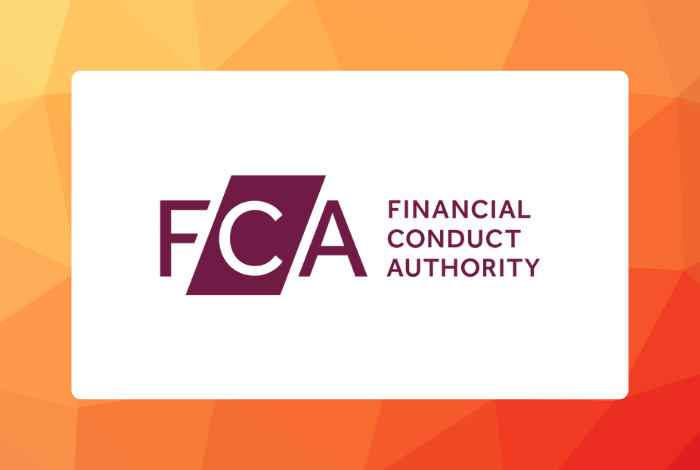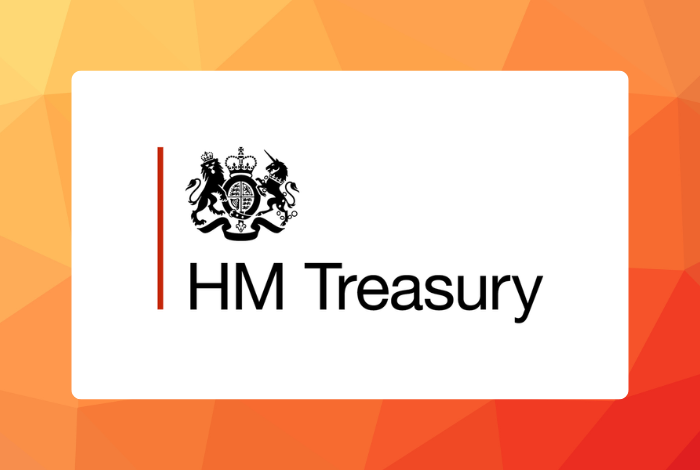CryptoUK welcomes the opportunity to respond to the Call for Evidence on a growth and competitiveness strategy for the UK’s financial services sector. The full response can be found below. Otherwise, if you would like a print-friendly version, you can download the response in PDF format here.
CryptoUK is the UK’s self-regulatory trade association representing the crypto and digital asset sector. Our members comprise over 160 of the leading companies across the sector. In responding to the Call for Evidence, we seek to offer pragmatic and relevant suggestions as to how we believe the government could approach the questions and topics raised.
Discussion Questions
Innovation & Technology
Question 4.4: What is your assessment of how effectively the UK supports innovation and the adoption of new technology? What could be improved in the financial services sector?
There is progress and support in some areas, and these are partially effective. However, there is still concern that the UK has fallen behind and has significant scope to improve with respect to being a global leader in all of the current and developing innovation from the UK’s emerging technologies sectors, such as those relying on blockchain and distributed ledger technology (“DLT”).
We would like to highlight below some of the areas of progress and support, along with some specific suggestions for improvement that would enable innovation and adoption:
- The Digital Securities Sandbox is an excellent way to move innovation ahead. One caveat is that the final requirements do not permit the testing of e-money or stablecoins as part of the transactions. We have commented in our to Question 4.6 and wish to reiterate here that we believe that to be a mistake that will hinder innovation and experimentation in these areas.
- We also acknowledge the advancements already made to payments efficiencies through the Faster Payments System that was world-leading when it was introduced in 2008. We encourage the UK to seek to be at the forefront globally again with respect to current and future innovation in payments. At present the Bank of England (“BOE”) expects that payment transactions be conducted in central bank money. This expectation may hinder the UK’s ability to lead globally (as it has done in the past) on “faster payments”.
- We note that already high-functioning examples exist of real-time and near real-time settlement of cryptoasset payments and transfers, including across borders. This particular area is of high importance precisely because of the risk and frictions and costs that remain and have remained for decades within traditional payments and transactions with the biggest improvement potentially being to T+1 in some parts of the world (although not in the UK at present). In light of the settlement innovations already present with DLT use cases, T+1 settlements should not be the main goal, but rather, the goal should be a true real-time or near real-time settlement, especially with non-complex financial transactions. The BoE has already done work and testing on this, so we would encourage a continuation of this work and testing, with the publication of these results as soon as possible.
Question 4.5: Which technologies do you think have the most potential to transform financial services over the next 10 years? And in which financial services sectors or functions do you see these being applied most effectively?
We believe, along with representatives of broader financial services organisations, who do not directly represent the digital and cryptoassets sector, that distributed ledger and blockchain technologies have the most potential to transform financial services over the next 10 years.
Specifically, we believe that the following financial services functions fare those to which they will be applied most effectively:
- All types of existing financial transactions, such as (some of which will be centralised, and some of which will be decentralised), such as:
- Payments
- Settlement
- Lending
- Collateral
- New types of transactions, such as:
- Protocol staking
- Liquidity pools
- Tokenisation of real world assets
- Crime prevention and enforcement activities, such as:
- AML and fraud detection or prevention
- Asset tracing (and seizure, where appropriate)
We further believe the pace of innovation is clearly strongest in the cryptoasset payments infrastructure and technology. Transactions settle across borders and time zones on a 24/7 basis with real-time or near to real-time efficiency and effectiveness. Traditional finance is still behind cryptoasset payments, and the UK is behind even within traditional finance. Clearly, this pace of innovation is inadequate within traditional finance, and especially within the UK.
As such, we recommend that His Majesty’s Treasury (“HMT”), Bank of England, and UK regulators comprehensively and truly seek to learn from and adapt to the incredible innovations provided by distributed ledger technologies and other related emerging technologies. They have accomplished in a matter of years what it has taken decades for the traditional finance to only approach (given that cryptoasset settlement, even globally, can already be complete in real-time or near real-time).
Further, sophisticated functionalities already exist within the DLT and digital assets space that enable and streamline the back office functions and needs. We would encourage further understanding and actual examination of those in detail. Many of our members work in this space, and we would be happy to facilitate discussions with HMT and UK regulators to demonstrate the incredible tools and work that are already available.
The government has expressed its interest in the potential role of technology in tackling fraud and financial crime. Blockchain and DLT technologies are uniquely positioned (along with AI), to advance government and law enforcement capabilities in this arena.
The finalisation of a UK regulatory framework for cryptoassets and stablecoins is key. Draft rules have been published and a roadmap from the Financial Conduct Authority (“FCA”) has been issued, However, more clarity on timings is still needed to ensure the industry can be prepared to align their growth and innovation plans with any upcoming regulation requirements. We also believe that the regulatory pacing as proposed may need to be revisited as it is likely to leave the UK even further behind. The US is expected to update and implement its regulatory framework relatively quickly, and the UK is behind several other global jurisdictions, and will find itself significantly behind a fast-moving US.
Regulatory Environment
Question 4.6: What is your assessment of the UK’s current regulatory environment?
The regulatory environment in the UK is functioning reasonably well with respect to the primary objective of ensuring that UK financial markets function well (via the protection of consumers and financial markets, and promotion of competition. However, UK regulators are not adequately focused on their secondary objective to promote international competitiveness and growth because consumer protection, fraud prevention, and market abuse/stability are such a primary focus. While the industry understands and supports the work done on the primary objective, the secondary objective is key to achieving significant and sustained economic growth in the UK.
Further, our members are concerned that the FCA is not clearly enabled by the government to carry out both objectives without significant change in the FCA’s underlying structure, KPIs, culture, and skills. This lack applies both to digital and cryptoassets knowledge itself, and also to how commercial endeavours grow and compete globally.
To the extent that the regulator teams and their leaders have only or mainly been in public sector roles they will likely be limited in their understanding of the private sector, how competition and growth occurs, and how best to responsibly foster it, while also protecting consumers, markets, and competition. Our members strongly recommend that a programme of secondments from the industry into the FCA and from the FCA into the industry be pursued.
Because of the speed at which commercial entities must operate and adapt to new regulations or timelines, the private sector would benefit from more timely publication of findings and next steps after a regulator has engaged with the industry. FCA roundtables were held with the industry in April and May of 2024, with some of the results and findings only recently being released or scheduled for release.
Question 4.7: How can regulation support responsible and informed risk-taking?
Our members believe the following areas should be addressed because they reflect concerns that the regulatory environment does not effectively deliver on the secondary objective:
- Seek to be at the forefront globally with respect to the secondary objective.
- Upskill regulator staff with additional industry-specific skills, as well as with knowledge about how the commercial sector grows and competes internationally.
- Engage with the crypto and digital assets industry on the secondary objective itself, instead of solely or primarily on the primary objective.
- Publish key statistics and information on how UK authorisation statistics compare with other countries.
- Explore in more detail the dearth of authorisations in the UK for this industry.
- Calibrate fees more effectively to ensure start-ups and new companies are truly being encouraged to grow and innovate.
- Add new KPIs/metrics for the regulators that clearly and validly capture the secondary objective. Suggestions for these are set out below by separate categories:
- Regulatory clarity and responsiveness
- Timeframes for issuing consultations, new rules, or amendments in response to technological and market developments.
- Authorisation metrics by sector, specifically addressing delays in crypto authorisations compared to traditional finance.
- Regulatory clarity and responsiveness
-
- Innovation and product development
- Number of new financial products and services introduced into the market
- Types of new financial products and services introduced into the market. (particularly those that leverage emerging technologies such as blockchain, AI, and decentralised finance (DeFi)).
- Innovation and product development
-
- Market access and liquidity
- Tracking liquidity across markets (including cryptoassets), alongside the number of firms.
- Market access and liquidity
-
- Inward Investment from abroad into the UK
- Monitoring venture capital, private equity, and other forms of investment into UK [fintech and] crypto businesses would provide an indicator of both current and future.
- Inward Investment from abroad into the UK
Fintech
Question 5.3: What do you see as the most important ingredients for a thriving UK fintech sector in the coming 10 years?
Some of the opportunities to promote innovation and growth in the financial services sector include:
- Formalise an effective regulatory framework for the digital and cryptoassets industry that attracts new businesses to the UK and keeps those that are already here. This is a call to the new government to finalise the legislation developed with strong industry input over the past several years. While the FCA has recently published its Crypto Roadmap (26 November 2024), it still needs further details and confirmation on concrete next steps to ensure regulatory clarity in the UK.
- Ensure that the UK government and regulators understands how commercial firms grow, innovate, and compete globally within the digital and cryptoassets industry, which can be different from traditional corporate and financial services organisations.
- Recognise and support the role that proportionate and reasoned taxation plays in economic growth and international competition. Focus on the areas where taxation of crypto transactions is not proportionate or consistent, especially for retail participants.
- Provide regulatory sandboxes for which costs to engage are tiered by development stage of the company, and for which digital and crypto currency innovations can then be tested and provided to the retail marketplace.
- Coordinate with a strong, informed, strategic, and nimble Regulatory Innovation Office and add the digital and cryptoassets industry to its list of sectors of focus.
While our members do see clear indications that the FCA wishes to develop an appropriate level of expertise in this new and fast-changing industry, they unfortunately do not appear to have sufficient capability and capacity currently to fulfil the secondary objective. This lack applies both to digital and cryptoassets knowledge itself, and to how commercial endeavours grow and compete globally.
To the extent that the regulator teams and their leaders have only or mainly been in public sector roles they will likely be limited in their understanding of the private sector, how competition and growth occurs, and how best to responsibly foster it, while also protecting consumers and markets. Our members strongly recommend that a programme of secondments from the industry into the FCA and from the FCA into the industry be pursued.
Because of the speed at which commercial entities must operate and adapt to new regulations or timelines, the private sector would benefit from more timely publication of findings and next steps after a regulator has engaged with the industry. FCA roundtables were held with the industry in April and May of 2024, with some of the results and findings only recently being released or scheduled for release.
There are important examples from other jurisdictions that the UK should emulate.):
- Specific European regulators working on the Markets in Crypto-Assets (MICA) implementation and the resultant authorisation changes. They are actively working with legitimate market participants to navigate the process.
- Dubai pays its regulators and staff competitively and can adjust regulation at pace as needed. Communication throughout the process is seamless and timely between the applicant and the regulator.
- Japan has a significant department that focuses on business development and international growth.
- The United States is poised to institute a significant regulatory framework, coupled with direct engagement with the industry at the highest level of government to enable the international growth and competitiveness of the US digital assets industry.
Question 5.4: Which are the critical factors for success that are specific to the fintech sector to enable innovative businesses to succeed?
Please see our answers to Questions 4.4, 4.7, 5.3.




